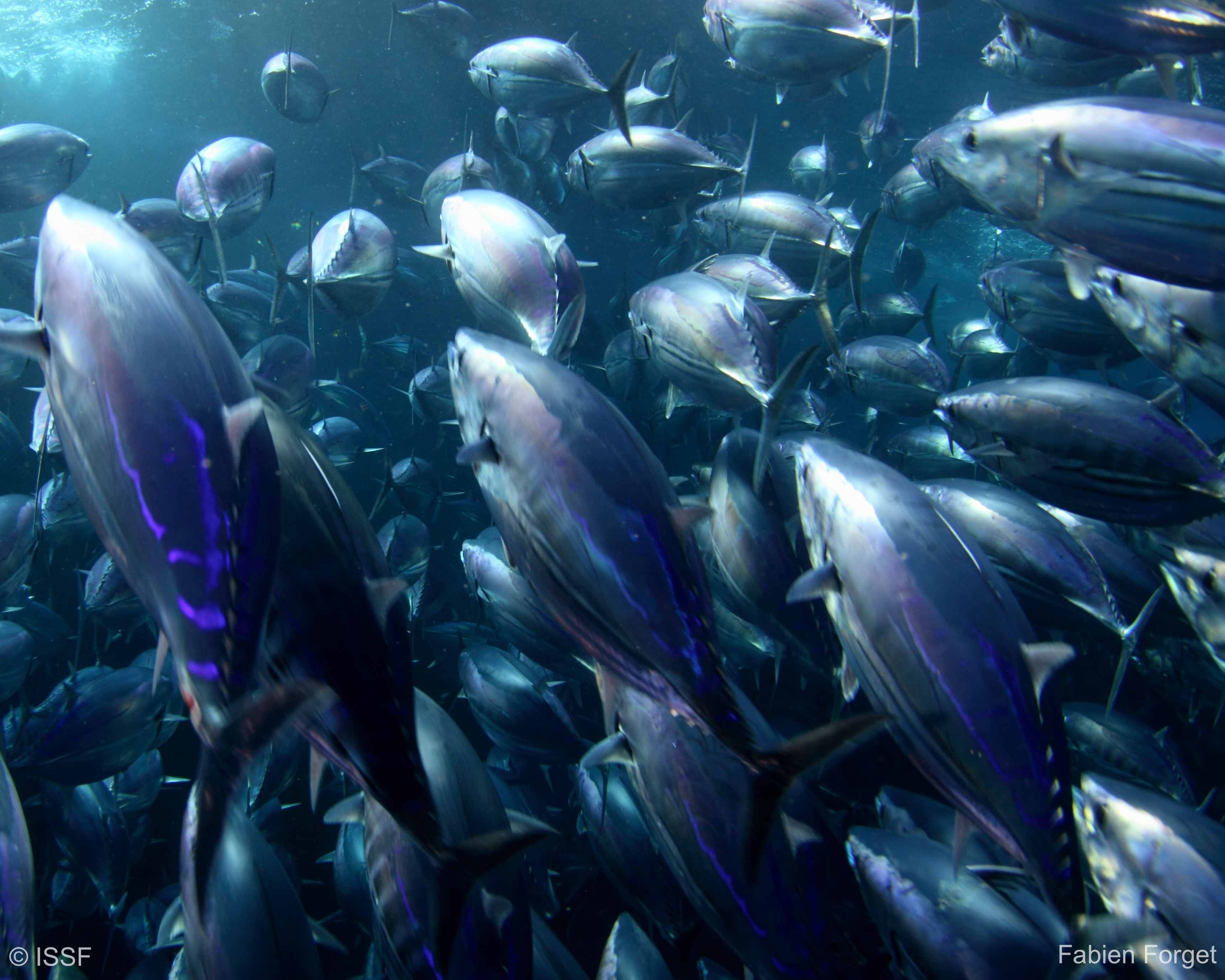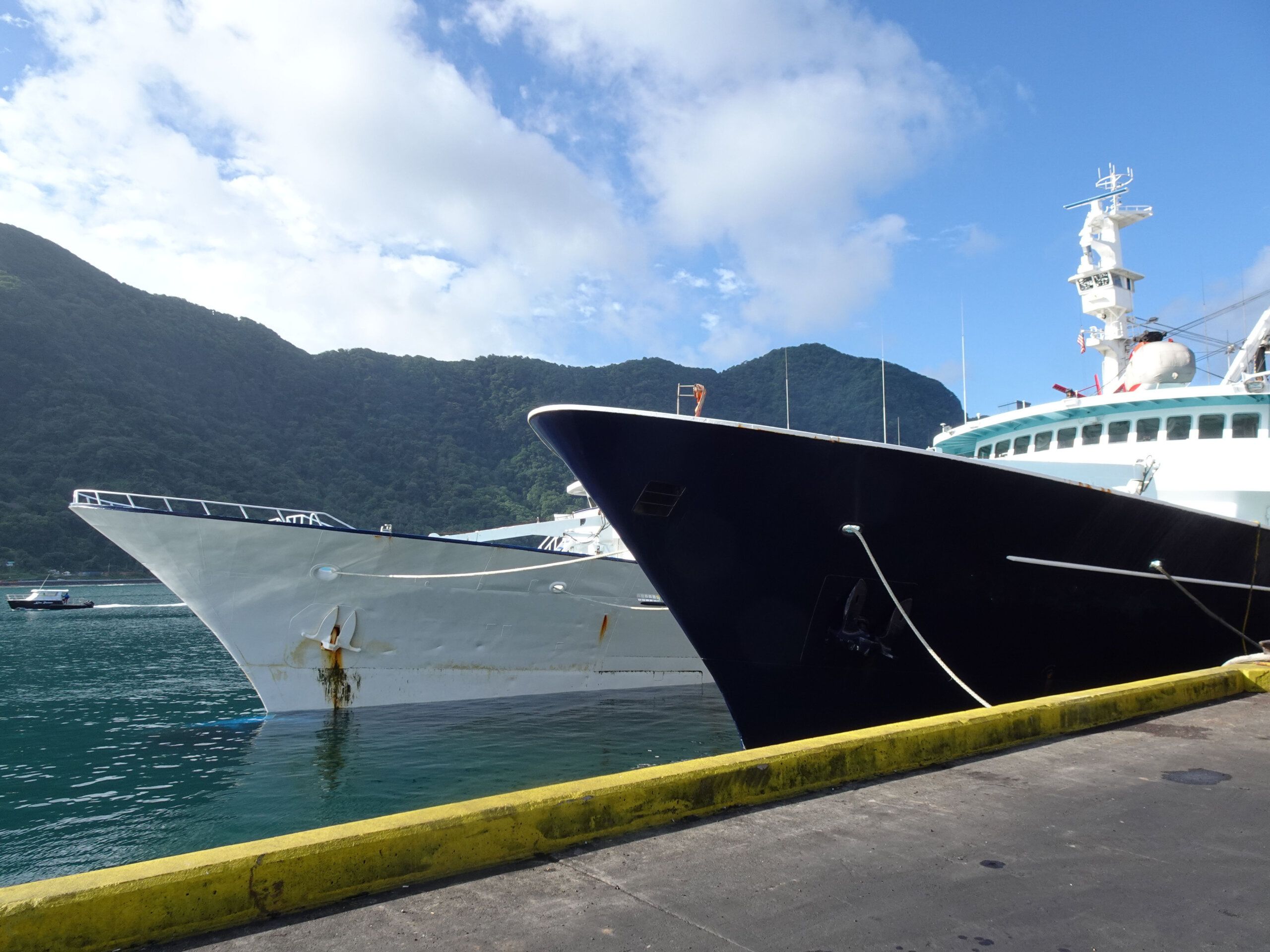ISSF Report: 12 Tuna Stocks Not Meeting Criteria for Marine Stewardship Council (MSC) Fisheries Standard
Fisheries scientists in An Evaluation of the Sustainability of Global Tuna Stocks Relative to Marine Stewardship Council Criteria — a June 2024 report commissioned by the International Seafood Sustainability Foundation (ISSF) — found 11 of the 23 major commercial tuna stocks worldwide are successfully avoiding overfishing and maintaining target stock biomass levels when measured against the Marine Stewardship Council (MSC) Fisheries Standard. In the March 2023 edition of the ISSF report, eight stocks passed Principle 1. In this year’s report, three additional stocks received a passing score.
The 11 stocks are Western Atlantic skipjack, North Atlantic albacore, South Atlantic albacore, Eastern Atlantic bluefin, Western Pacific yellowfin, Western Pacific bigeye, Western Pacific skipjack, Eastern Pacific yellowfin, Eastern Pacific skipjack, Indian Ocean skipjack and Southern Ocean bluefin. These stocks achieved a passing score for the Standard’s Principle 1, “Sustainable Fish Stocks,” which requires fisheries to be managed in a manner that does not lead to overfishing or depletion of exploited fish populations.
Seven of the 23 stocks also have fully implemented well-defined harvest control rules. However, failure to implement controls before rebuilding is required continues to contribute to an increasing number of stocks failing to meet minimum requirements on harvest control rules.
An Evaluation of the Sustainability of Global Tuna Stocks Relative to Marine Stewardship Council Criteria was authored by Paul A. H. Medley and Jo Gascoigne.
About the MSC Fisheries Standard
MSC is an independent, international, non-profit organization that oversees a program to assess global wild-capture fisheries and certify them as “sustainable” if they meet its Fisheries Standard criteria.
About the Report
ISSF 2024-06: An Evaluation of the Sustainability of Global Tuna Stocks Relative to Marine Stewardship Council Criteria takes a consistent, comprehensive approach to scoring tuna stocks based on certain components of the MSC standard. Updated regularly since it was first published in 2013, and organized by individual tuna stock and tuna Regional Fisheries Management Organization (RFMO), the report is designed to:
- Provide a basis for comparing between stocks scores that are assigned by the same experts
- Become a useful source document for future tuna certifications
- Give a “snapshot” of the current status of the stocks and the strengths and weaknesses of RFMOs
The updated scores in the report focus on stock status (MSC Principle 1) and are based on publicly available fishery data. MSC Principle 1 is evaluated in relationship to its Performance Indicators (PIs). The report is adapted to MSC standard 2.01 — released in 2019 — and to changing stock status and management situations. As the MSC has delayed implementation of MSC Standard 3.0, ISSF will adjust the report to measure against the new standard when appropriate in the future. In addition, this update does not re-score the RFMO section (Principle 3).
The Evaluation report includes detailed remarks on each stock, evaluations of the five RFMOs and comprehensive reference citations.
MSC Principle 1
The MSC Principle 1 states: “A fishery must be conducted in a manner that does not lead to over-fishing or depletion of the exploited populations and, for those populations that are depleted, the fishery must be conducted in a manner that demonstrably leads to their recovery.” The report authors attribute stocks with failing scores to poor stock status, the lack of well-defined harvest control rules in place and the lack of effective tools to control harvest. In the 2024 report, seven of the 23 stocks have fully implemented well-defined harvest control rules.
Notes regarding tuna stocks receiving passing scores:
- Unchanged since last year’s March 2023 version of the report, of nine tuna stocks in the Atlantic Ocean, four received an overall principle-level passing score: Western skipjack, Northern albacore, Southern albacore and Eastern bluefin.
- Among nine tuna stocks in the Pacific Ocean, these five received overall principle-level passing scores: Western yellowfin, Western bigeye, Western skipjack, Eastern yellowfin and Eastern skipjack. Western yellowfin and Western bigeye did not receive a principle-level passing score in the March 2023 report.
- Among four tuna stocks in the Indian Ocean, as in last year’s report, only skipjack received an overall principle-level passing score.
- Southern bluefin received an overall principle-level passing score — a change from last year’s report. This stock is also the second bluefin stock to receive a passing score.
Notes regarding tuna stocks receiving failing scores:
- In the Atlantic, yellowfin, bigeye, Eastern skipjack, Mediterranean albacore and Western bluefin received principle-level failing scores — as also reported last year.
- In the Pacific, four stocks — as also reported last year — received overall principle-level failing scores: Eastern bigeye, Northern albacore, Southern albacore and Pacific bluefin.
- In the Indian Ocean, as reported last year, yellowfin, bigeye and albacore all received overall principle-level failing scores.
An updated infographic featuring average scores based on MSC Principle 1 since 2013 is available for download on ISSF’s website. Additionally, a related infographic featuring average scores for each tuna RFMO based on Principle 3 is available.
Since 2011, ISSF has been an active stakeholder in MSC tuna fishery assessments and certifications. ISSF’s strategic objective is to develop and implement verifiable, science-based practices, commitments, and international management measures to help all tuna fisheries become capable of meeting and maintaining the MSC certification standard.









